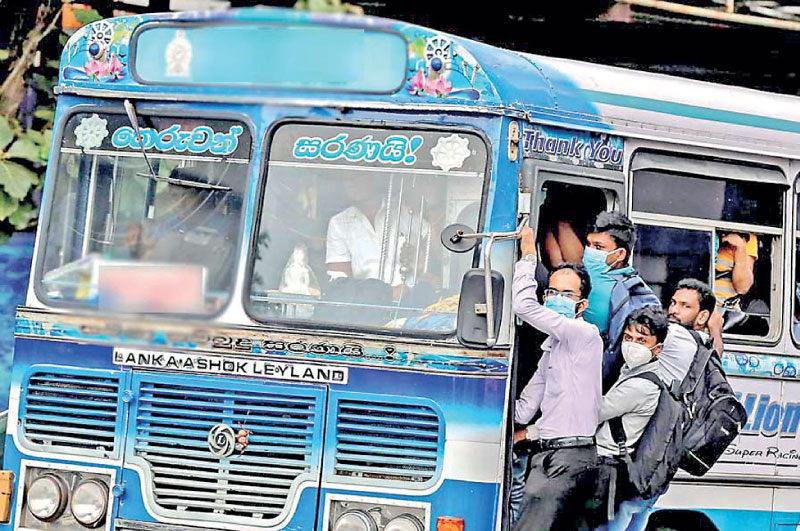Saturday Feb 14, 2026
Saturday Feb 14, 2026
Thursday, 3 October 2024 00:00 - - {{hitsCtrl.values.hits}}

What we commuters want is an economical, reliable, comfortable, safe public transport system
 Bus service was nationalised in 1958 and during early 70s there was a very good bus service in the country when late Anil Moonasinghe was the Chairman of CTB. Most bus stands in towns had a time table, although there were delays, etc. CTB always assured the first and last bus. Then in 1977 the bus service was opened for private sector. That was under the premise competition would give the commuter a better service. Even after nearly four decades we are struggling to experience what can be considered a “transport service” which is reliable and convenient and economical. What we have is far from those basic qualities and in addition what we have is dangerous to all road users and even bystanders.
Bus service was nationalised in 1958 and during early 70s there was a very good bus service in the country when late Anil Moonasinghe was the Chairman of CTB. Most bus stands in towns had a time table, although there were delays, etc. CTB always assured the first and last bus. Then in 1977 the bus service was opened for private sector. That was under the premise competition would give the commuter a better service. Even after nearly four decades we are struggling to experience what can be considered a “transport service” which is reliable and convenient and economical. What we have is far from those basic qualities and in addition what we have is dangerous to all road users and even bystanders.
If the bus service is organised around the commuter, we can surely find a solution. Somewhere in 2012-2013 there were discussions about running the buses according to a shared timetable. But one argument against that, according to newspaper reports, is that would weaken CTB.
What we commuters want is an economical, reliable, comfortable, safe public transport system. Who provides it is immaterial. Now we have CTB bus stands and private bus stands in very expensive commercial areas. But along the roads there are only shared bus halts. Isn’t this crazy and stupid.
Immediately we must develop timetables based on commuter requirements, merge all the bus stands to one and let the busses move according to that whether privately owned or CTB owned. Set minimum standards for buses and move for prepaid and technology enabled so that they can be better regulated. With a shared timetable and common approach unprofitable routes and turns of service can be shared equitably between the CTB and the private sector bus owners. Persuade the private owners to form either public companies or cooperatives so there can be better governance and assuring interests of all stakeholders.
Such a change will save time; a cost that is unaccounted for, reduce the mad race on the roads and resultant accidents, eliminate the various illegal activities associated with the current bus operating system.